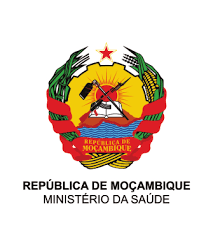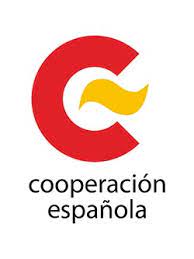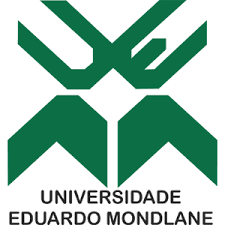A Pan-African Research Infrastructure for Collaborative Biomedical Imaging and Artificial Intelligence in Respiratory Care (AFRICAI-RI)
Artificial intelligence in medical imaging: From a great promise to a great divide:
Artificial Intelligence (AI) has shown immense promise for enhancing access to healthcare. Illustrated by the advancements of ChatGPT, AI has revealed new horizons previously unimaginable. In medicine, AI is particularly powerful for analysing complex data such as medical images. A recent study showed that among the 700 medical AI tools already approved by FDA, a staggering 76% are dedicated to medical imaging1. However, a significant divide exists: The vast majority of these AI technologies have been developed in and for high-income countries. In Europe, strategic funding initiatives have facilitated the establishment of medical imaging repositories, which are crucial to provide large, diverse imaging datasets for AI training and validation. EU programmes such as AI4HealthImaging, ProCancer-I, EuCanImage, CancerImage.eu and Euro-Bioimaging, orchestrated by collaborative efforts led by partners UB, FORTH and EMC, have been instrumental in driving these advancements. However, Africa stands on the other side of this technological divide, with no comparable imaging repositories. This deficit poses a substantial barrier to aggregating African datasets and developing AI solutions that address Africa specific imaging challenges. To promote the development of AI for medical imaging in Africa, UB led an international effort to organise the 27th MICCAI conference (the largest international event in medical image computing) on the African continent for the first time, and to set up the African Network for AI in Biomedical Imaging (AFRICAI)2. As part of these initiatives, EMC published a white paper outlining a blueprint for the creation of a pan-African medical imaging repository.
AFRICAI-RI: Bridging the AI divide through pan-African and European collaboration
AI holds great promise for enhancing access to healthcare and medical imaging across Sub-Saharan Africa (SSA), especially in regions impacted by infectious diseases such as respiratory diseases. Already, AI has shown its potential
to facilitate cost-effective TB diagnosis in adults and the general population with chest X-ray (CXR) imaging4. Our SME partner DIG has developed the renowned CAD4TB technology, which has been extensively validated across SSA for TB detection in adults with CXR. Yet, considerable clinical gaps persist, particularly in underserved demographics such as children or HIV-infected individuals, where AI interventions could make a significant impact.
For example, the CAD4TB technology has faced challenges in paediatric applications due to unique presentations on CXR5 and limited training data. Diagnosing TB in vulnerable subgroups such as co-infected HIV patients also presents complications due to distinct CXR presentations. Moreover, distinguishing bacterial from viral pneumonia or TB from pneumonia in children remains a difficult task in clinical practice. Our partners in Uganda have indicated the potential of chest ultrasound (CUS) as a safe alternative for TB diagnosis in children. However, the quantity of retrospective CUS images available in single SSA centres are often insufficient to train and validate robust diagnostic AI tools for under-represented populations. Hence, a collaborative AI approach is urgently needed in order to develop new AI solutions for all populations by pooling datasets and resources across multiple SSA countries.
AFRICAI-RI is a transformative initiative to establish the very first, comprehensive and open imaging repository for Africa, addressing a critical gap in the continent's biomedical resources. The project will draw on years-long experience and the successful construction of large-scale imaging infrastructures in Europe. Furthermore, it will leverage an exceptional, diverse network of SSA centres of excellence spanning 10 countries, providing a strong initial representation of the continent's geographical and cultural diversity. This open infrastructure will (1) facilitate trusted multi-centre data sharing and processing, (2) provide advanced tools for data anonymisation, curation, and enhancement, and (3) enable to deploy federated learning for privacy-preserving and trustworthy AI.
Our ambition: To build a pan-African platform for addressing unmet clinical needs:
To develop impactful digital solutions and provide common direction to the project, we will adopt a use case-driven approach. For scalability, we carefully selected three distinct use cases covering diverse imaging data (CXR, CUS), age groups (adults and children), and respiratory diseases (TB and pneumonia). Utilising the proposed platform and its extensive multi-disease datasets, our aim is to build and test new AI solutions for these use cases:
Use Case 1 – AI-Enabled Diagnosis of Respiratory Diseases with CXR in HIV-Infected Adults
Use Case 2 – AI-Enabled Differentiation of Respiratory Diseases with CUS in Children
Use Case 3 – AI-Enabled Diagnosis of TB with CXR in Children
While these cases do not cover all respiratory disease needs, they provide sufficient diversity to design a scalable data platform, while ensuring feasibility within the project’s duration. They also offer opportunities for innovation in the field of trustworthy AI, particularly for building AI tools that are robust to imaging variations (between scanners, vendors), fair across demographic groups (e.g. according to sex, age), and applicable across SSA countries.
To implement the digital solutions based on these use cases, the project will implement a continuous co-creation strategy, to gather actionable insights from local clinicians, healthcare managers, patients/citizens, AI researchers, and public authorities. Leveraging strong pan-African and Euro-African partnerships, the project will also lay out plans for scalability, sustainability, and capacity building for the years ahead. Ultimately, with a close eye on the diverse realities across the continent, this initiative is set to pave the way for a new era of health technology and local empowerment across SSA.
Specific objectives:
1. Implement a comprehensive co-creation approach with continuous stakeholder involvement across SSA to enhance acceptance, adoption and scalability.
2. Develop and populate the first-ever pan-African imaging infrastructure to enhance the availability, sharing and exploitation of African imaging data for AI-powered detection of respiratory diseases.
3. Deliver open-source, user-friendly toolkits to enhance the quantity and quality of medical imaging data across Africa, as well as to facilitate the training and testing of trustworthy AI solutions across SSA.
4. Implement new AI-driven solutions tailored for accessible image-based diagnosis of respiratory diseases in at-risk, under-represented populations across SSA.
5. Demonstrate the practical value and healthcare benefits of the developed digital solutions in addressing pressing research and health challenges in SSA.
6. Develop plans for scalability, sustainability, and capacity building for long-term impact and growth.





